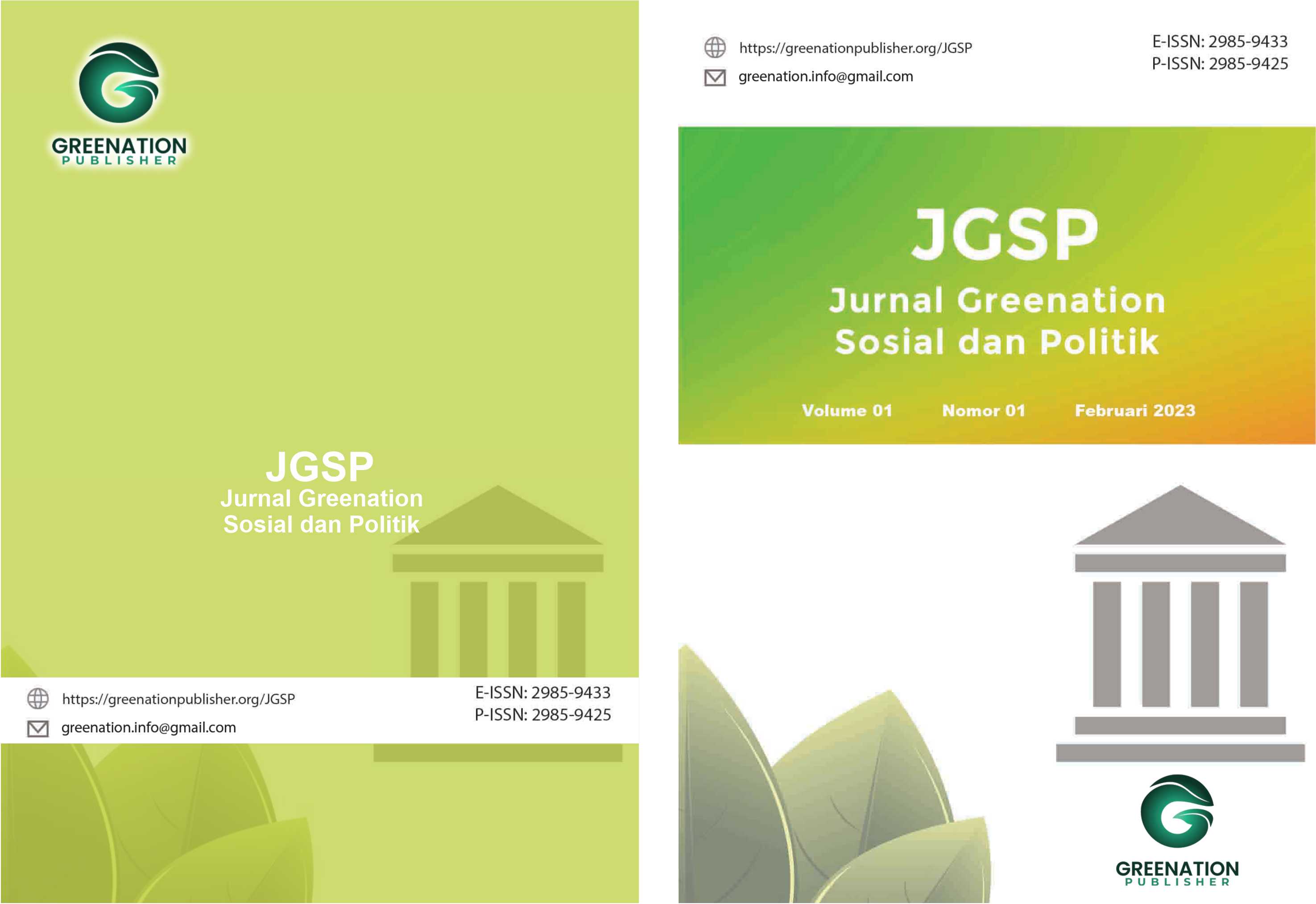Asset Recovery Mechanisms in Transnational Corruption Cases: Legal Frameworks and International Cooperation Challenges
DOI:
https://doi.org/10.38035/jgsp.v3i3.442Keywords:
Asset Recovery, Transnational Corruption, international cooperation, Indonesian Law, Mutual Legal AssistanceAbstract
Asset recovery in transnational corruption cases has become an important issue in efforts to eradicate corruption crimes with cross-border impacts. The phenomenon of corruption, which is complex and organized in nature, often involves the concealment of assets in various jurisdictions, thus requiring a comprehensive legal mechanism and effective international cooperation. This research aims to analyze the legal framework for asset recovery both in Indonesia's national law and in the context of international instruments, as well as to evaluate the main challenges faced in its implementation. The approach method used is normative juridical by reviewing the latest legislation, such as Law Number 1 of 2023 on the Criminal Code, the Anti-Corruption Law, the Anti-Money Laundering Law, as well as international instruments such as the United Nations Convention against Corruption (UNCAC) and the recommendations of the Financial Action Task Force (FATF). The discussion covers the stages of asset recovery from identification, tracing, freezing, seizure, to the return of assets. It also discusses the role of related institutions such as the Corruption Eradication Commission (KPK), the Financial Transaction Reports and Analysis Center (PPATK), the Attorney General’s Office, the Police, and the Asset Recovery Center (PPA). The main obstacles identified include differences in legal systems between countries, slow mutual legal assistance procedures, lack of political will, and issues of transparency in the management of recovered assets. This research emphasizes that synergy between countries, legal harmonization, and strengthening of institutional accountability are the keys to the success of cross-border corruption asset recovery.
References
Aldamia, R. M. (2022). Pengembalian Aset Pelaku Tindak Pidana Korupsi Dalam Hukum Internasional Dan Implementasinya Pada Hukum Nasional Indonesia. Muhammadiyah Law Review, 6(1), 54-69.
Arifin, M. Z. (2024). Tindak Pidana Korupsi Kerugian Ekonomi dan Keuangan Negara (Perspektif Hukum dan Praktik). Jakarta: PT Publica Indonesia Utama.
Firdaus, A. &. (2021). Pengembalian Aset (Asset Recovery) Dalam Tindak Pidana Pencucian Uang Lintas Negara. Jurnal Justitia: Jurnal Ilmu Hukum Dan Humaniora, 8(3), 301-308.
Fitriah, R. &. (2024). Implikasi Hukum Internasional Terhadap Penanganan Tindak Pidana Pencucian Uang Di Indonesia. Jurnal Intelek Insan Cendikia, 1(9), 5347-5363.
Hartono, C. &. (2025). Model Pemulihan Kerugian Keuangan Negara Akibat Kasus Korupsi melalui Civil Forfeiture. Jurnal Ilmu Hukum, Humaniora dan Politik (JIHHP), 5(3).
Haswandi, H. &. (2023). Tanggung Jawab Perdata Pelaku Tindak Pidana Korupsi Dan Ahli Warisnya: Pengembalian Aset Tindak Pidana Korupsi. Jakarta: Prenada Media.
Herman, H. &. (2025). Asset Forfeiture: A Blueprint for Justice, Legal Reform and Corruption Eradication. Yustisia Tirtayasa: Jurnal Tugas Akhir, 5(1).
Hermawan, D. F. (2024). Analisis Dampak Korupsi Dalam Pembangunan Infrastruktur Di Negara Berkembang. Innovative: Journal Of Social Science Research, 4(1), 4259-4271.
Jannah, R. R. (2025). Efektivitas Mekanisme Pencegahan dan Pemberantasan Tindak Pidana Pencucian Uang dalam Perspektif Hukum Positif Indonesia. Media Hukum Indonesia (MHI), 2(5).
Kesuma, D. A. (2021). Penerapan mutual legal assistance (mla) dan perjanjian ekstradisi sebagai upaya Indonesia terkait pengembalian aset hasil tindak pidana korupsi. Lex Lata, 3(1).
Kurniawan, F. A. (2022). Determinasi Upaya Pemulihan Kerugian Keuangan Negara Melalui Peran Kejaksaan terhadap Perampasan Aset Tindak Pidana Korupsi. Jurnal Hukum Lex Generalis, 3(7), 565-588.
Lutfi, K. R. (2020). Optimalisasi peran bantuan hukum timbal balik dalam pengembalian aset hasil tindak pidana korupsi. Undang: Jurnal Hukum, 3(1), 33-57.
Mahmud, A. (2020). Urgensi Penegakan Hukum Progresif Untuk Mengembalikan Kerugian Negara Dalam Tindak Pidana Korupsi. Masalah-Masalah Hukum, 49(3), 256-271.
Mahmud, A. S. (2021). Keadilan Substantif dalam Proses Asset Recovery Hasil Tindak Pidana Korupsi. Jurnal Suara Hukum, 3(2), 227-250.
Muhamad, W. M. (2023). Problematika Asset Recovery Dalam Tindak Pidana Korupsi Di Indonesia. Indramayu: Penerbit Adab.
Mustari, M. Y. (2022). Kewenangan Kejaksaan sebagai Jaksa Pengacara Negaran dalam Pengambilan Aset dalam Pengambilan Aset Hasil Korupsi melalui Instrumen Hukum Perdata. Jurnal Kolaboratif Sains, 5(5), 256-264.
Nugraha, S. P. (2020). Kebijakan Perampasan Aset Hasil Tindak Pidana Korupsi. National Conference on Law Studies (NCOLS), 2(1), 987-1000.
Parulina, J. R. (2023). Upaya Pemulihan Aset (Asset Recovery) Lintas Batas Negara di Wilayah Asia Tenggara. Diponegoro Law Journal, 12(1).
PERBIANTO, R. S. (2025). DISKURSUS PERAMPASAN ASET SEBAGAI BENTUK PENGEMBALIAN KERUGIAN KEUANGAN NEGARA AKIBAT TINDAK PIDANA KORUPSI. Jurnal Hukum Perjuangan, 4(1).
Waluyo, B. (2022). Pemberantasan tindak pidana korupsi: Strategi dan optimalisasi. Jakarta: Sinar Grafika.
Zulfiani, A. P. (2023). Pengaturan Tindak Pidana Korupsi Sebelum dan Sesudah Berlakunya Undang-Undang Nomor 1 Tahun 2023 tentang KUHP, dalam Upaya Menurunkan Angka Korupsi pada Sektor Swasta. UNES Law Review, 5(4), 4303-4324.
Downloads
Published
How to Cite
Issue
Section
License
Copyright (c) 2025 Feabo Adigo Mayora Pranata, Joko Setiono, Iza Fadri

This work is licensed under a Creative Commons Attribution 4.0 International License.
Hak cipta :
Penulis yang mempublikasikan manuskripnya di jurnal ini menyetujui ketentuan berikut:
- Hak cipta pada setiap artikel adalah milik penulis.
- Penulis mengakui bahwa Jurnal Greenation Sosial dan Politik (JGSP) berhak menjadi yang pertama menerbitkan dengan lisensi Creative Commons Attribution 4.0 International (Attribution 4.0 International CC BY 4.0) .
- Penulis dapat mengirimkan artikel secara terpisah, mengatur distribusi non-eksklusif manuskrip yang telah diterbitkan dalam jurnal ini ke versi lain (misalnya, dikirim ke repositori institusi penulis, publikasi ke dalam buku, dll.), dengan mengakui bahwa manuskrip telah diterbitkan pertama kali di JGSP.























